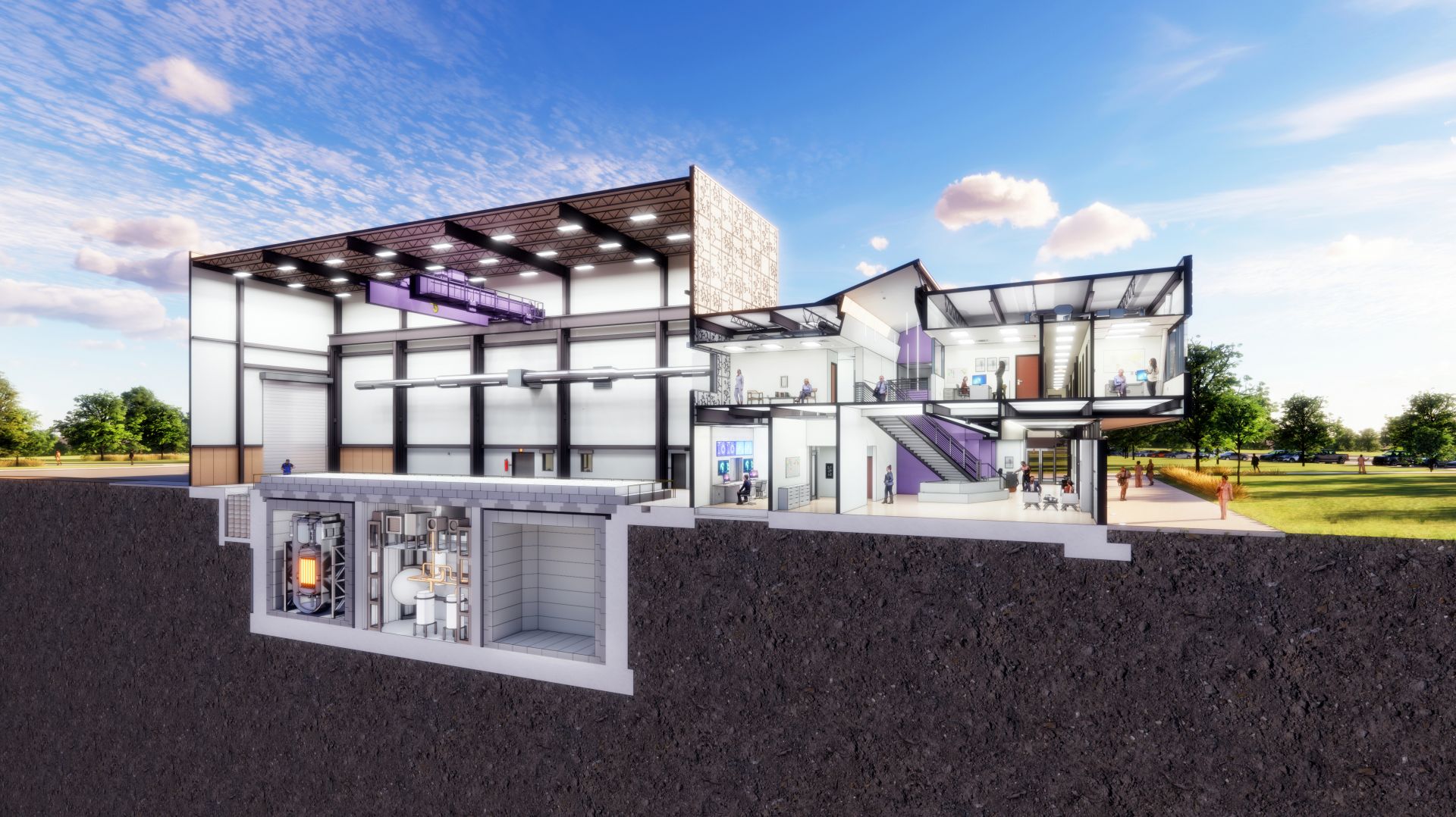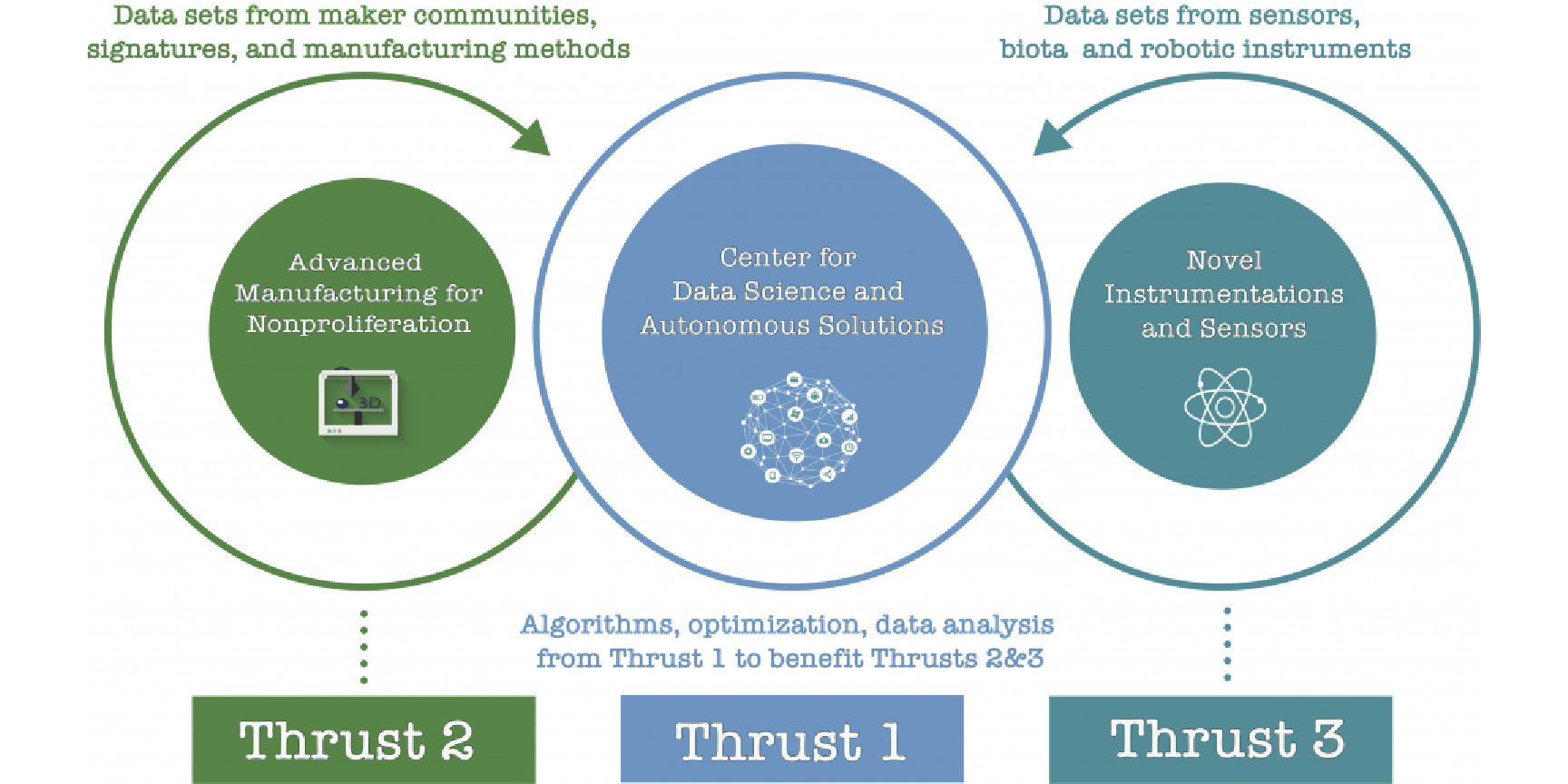UCOR’s Ken Rueter speaks to University of Tennessee students during an engineering colloquium series. (Photo: DOE)
A significant percentage of the workforce at the Department of Energy’s Oak Ridge Reservation in Tennessee is eligible to retire in the next decade, according to the agency. In an effort to address the potential for a staffing shortage, UCOR, the DOE’s Oak Ridge Office of Environmental Management contractor for cleanup activities at the site, is building a consortium with colleges and universities in the region. The collaboration aims to guide more students toward nuclear-applicable careers to build the next generation of workers for Oak Ridge and the nuclear industry at large.
ACU’s grand opening event for the Gayle and Max Dillard Science and Engineering Research Center. (Photo: ACU)
Abilene Christian University’s Gayle and Max Dillard Science and Engineering Research Center (SERC) has opened. SERC contains the Nuclear Energy eXperimental Testing Laboratory (NEXT Lab) and is the future home of one of the first advanced reactors in the United States. More than 300 people were on hand to celebrate the opening and tour the facility, including donors, government officials, and scientists from ACU and other research institutions.
A conceptual rendering showing a section view of the molten salt research reactor along with supporting systems and a simulator room for training students at Abilene Christian University. (Image: ACU)
Natura Resources of Abilene, Texas, has awarded a contract to Zachry Nuclear Engineering, which has offices in Connecticut and North Carolina, to complete the engineering and design of Natura's 1-MWt molten salt reactor (MSR). The agreement also provides terms under which Zachry may execute the engineering, procurement, and construction phase of the project. The dollar amount of the contract was not disclosed.
A south-facing view of the Dillard Science and Engineering Research Center at Abilene Christian University, scheduled for completion in the summer of 2023. The new facility will provide space for ACU’s NEXT Lab, as well as for research in chemistry, physics, and engineering.
Abilene Christian University’s Nuclear Energy eXperimental Testing (NEXT) Lab continues to make progress toward building a molten salt research reactor (MSRR) on the university’s campus. NEXT Lab submitted an application for a construction permit to the Nuclear Regulatory Commission last August, and in November the agency announced it had docketed the application—the first for a new research reactor in more than 30 years.
Nicholas Spivey, left, an SRNL mechanical engineer, and Kurt Gerdes, director of EM’s Office of Technology Development, use virtual reality simulation of an EM worksite during meetings held at the IHMC in Pensacola, Fla. (Photo: DOE)
For the first time since forming in 2020, more than 40 members of a Department of Energy team met in person to evaluate technologies, including exoskeletons and wearable robotic devices, that could be adapted to the cleanup mission of department’s Office of Environmental Management (EM), helping improve the safety and well-being of its workers.
The new Science and Engineering Research Center at Abilene Christian University (Photo: Abilene Christian University)
Nuclear News reached out to the Nuclear Engineering Department Heads Organization (NEDHO) to ask for assistance in connecting with nuclear engineering programs at U.S. universities. Our request to universities was to provide us with updates on their programs and to detail their areas of special interest.
NEDHO came through big time. As a result, 20 nuclear engineering programs answered the call. In this series of articles, we will take a close look at university programs around the United States. This time, the focus is on Abilene Christian University, in Abilene, Texas.










